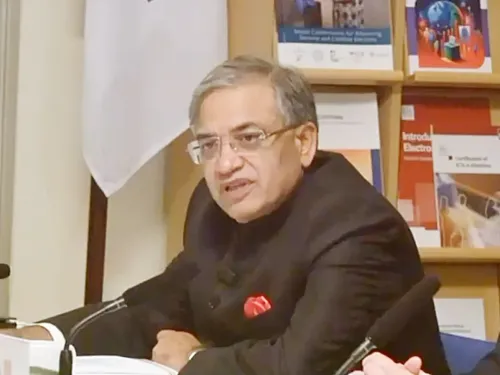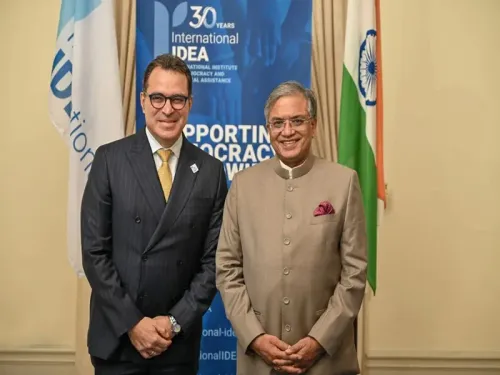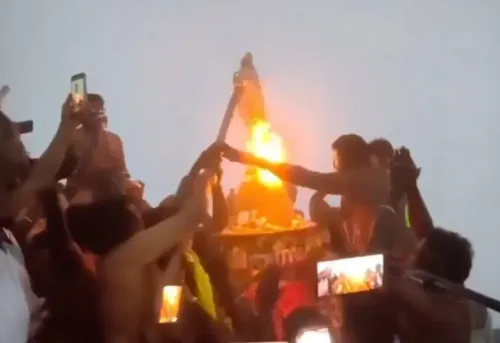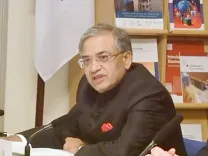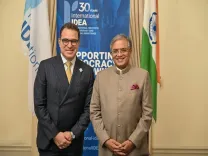Is the Centre Biased? Stalin Questions Federalism and Culture
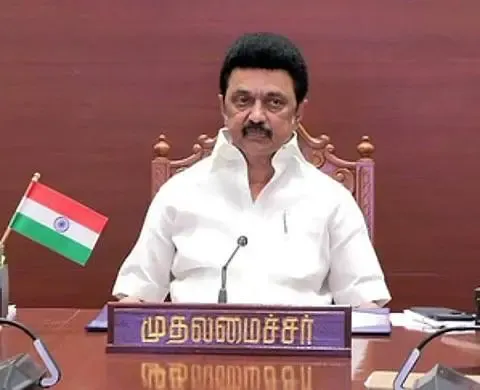
Synopsis
Key Takeaways
- Political Bias: Allegations against the Centre for discrimination against Tamil Nadu.
- Federalism: Concerns about the erosion of the federal spirit in governance.
- Language and Culture: Critique of cultural imposition in national legislation.
- Electoral Manipulation: Accusations regarding the misuse of electoral rolls.
- Archaeological Recognition: Demand for acknowledgment of Tamil Nadu’s historical findings.
Chennai, Oct 18 (NationPress) Tamil Nadu Chief Minister M.K. Stalin delivered a scathing critique of the BJP-led Union government on Saturday, accusing it of political discrimination and jeopardizing the federal spirit of governance. His statements followed accusations from State Finance Minister Thangam Thennarasu during Assembly discussions, where he claimed that the Centre has consistently displayed political bias against Tamil Nadu by withholding vital funds for education, welfare, and infrastructure projects.
In a post on X, the Chief Minister emphasized that both Thennarasu and “people across the country” are voicing concerns regarding the Union government’s actions. “I am raising some of those questions,” Stalin stated, subsequently posing pointed inquiries directed at the BJP.
“How does the washing machine clean corrupt politicians after they join the BJP alliance?” he asked, alluding to the selective enforcement of corruption allegations. He also questioned why “major schemes and laws of the nation are exclusively named in Hindi and Sanskrit,” which he described as a manifestation of linguistic arrogance and cultural imposition.
Stalin further lambasted Union Ministers for “restricting young minds by preaching unscientific superstitions,” and accused the BJP of manipulating Governors in Opposition-ruled States “to generate confusion and impede elected governments.” He also raised suspicions about the “Special Intensive Revision (SIR)” of electoral rolls, alleging it was being weaponized to “manipulate and steal votes” for the BJP’s electoral benefit.
Addressing Tamil Nadu’s archaeological findings, he questioned the Centre’s reluctance to acknowledge the Keeladi discoveries that affirm the ancient roots of iron in Tamil culture. “Why are you creating obstacles to block the Keeladi report, even after its scientific validation?” he challenged.
In conclusion, Stalin pondered whether any of his questions would receive answers or if the ruling party would continue to “spread false propaganda through WhatsApp University.” His statements are perceived as part of the DMK’s escalating campaign to spotlight perceived disparities between the Centre and the States, while also defending Tamil identity and autonomy within India’s federal structure.


